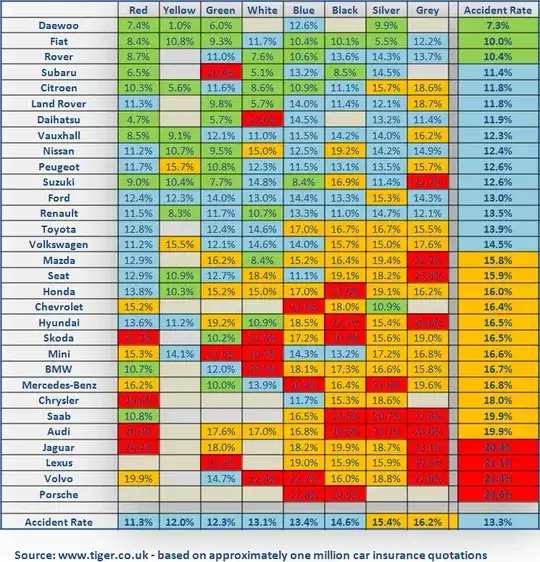I find these types of issues interesting, although it can be hard to answer the question as many different answers are possible depending on how you look at it.
For example, how is driving ability to be measured? Speeding tickets? Accident rate? Surveys of the general driving population?
Perhaps car accidents are a decent indicator given that it is widely accepted that human error is the cause of most accidents. This study states:
According to research done in Germany, human error is the major cause
in more than 90 percent of the accidents, and in almost 75 percent of
the cases human error is the only cause.
Wikipedia states:
A 1985 report based on British and American crash data found driver
error, intoxication and other human factors contribute wholly or
partly to about 93% of crashes
I have had a lot of trouble finding reliable statistics on car accidents per manufacturer.
I did find this article (which doesn't show the source of its data) which states that for data collected over 12 months from 2011 to 2011, the top 3 most accident prone cars according to this data were the Honda FR-V, the Volvo XC90 and in third place the Lexus RX.
It is important to note that this in no way indicates that BMW are not the worst drivers (using accidents as a metric) due to the limited amount of data I was able to find. However I could find nothing to support the claim that BMW drivers are the worst, or even any worse than drivers of cars from other manufacturers.
